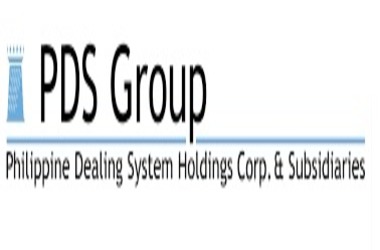
PDS Group subsidiary Phil. Depository & Trust Corp. (PDTC), the national Central Securities Depository for debt and equities, and STACS begun work on the venture, a proof of concept (PoC) to examine, utilize, and ascertain efficiency levels of DLT for PDTC’s fixed-income registration system and depository processes, with the intention of implementing a feasible DLT-powered PDTC Digital Registry & PDTC Digital Depository system that supports issuances and handling (transfers and corporate).
Immutability, system resilience, and many redundancies are some of the primary advantages and characteristics of distributed ledger technology (DLT) that support the digital bond. The distributed ledger technology (DLT) network consists of many nodes that instantly record all transactions. This helps to ensure immutability while also providing redundancy for the network. PDTC and STACS were able to successfully analyze and optimize the processes involved as a result of their relationship, which opened the door to new levels of efficiency and strategic potential. Paperless filing of issuing records for listing and registry can be done through the PDS Group’s e-Securities Issue Portal (e-SIP) to generate securities onto the PDTC Digital Registry, which is powered by STACS. This ensures that the newly implemented digital processes continue to be totally effortless for underwriters, issuers, and bondholders.
It is worth noting that these advantages were accomplished without violating any of the preexisting laws or regulations governing Philippine securities, and also the guidelines established by the Phil. Dealing & Exchange Corp. (PDEx), which is yet another associate firm of the PDS Group and is a Philippine SEC-licensed fixed income market operator. Secondary market dealings will take place on prevailing market framework for trading to clearing, as well as a freshly constructed link from the clearing platform to the PDTC Digital Depository, in order to finish the Delivery Versus Payment settlement. The UnionBank-issued Digital Bond is traded on the PDEx FI Market. Interoperability was designed to be an aspect of the venture that would permit PDEx Trading Participants and PDTC Depository Participants to effortlessly garner the advantages of the fresh digital market framework while still being backed by conventional market network and remaining compliant with the regulatory system. This was one of the goals of the venture.
Ramon Monzon, CEO at of the Group’s parent company, PDS Holdings, stated: “The digital economy is rapidly increasing all over the world, and it has the potential to become a substantial driver of development, competitiveness, and economic development. Financial market frameworks need to “digitalize” in order to be a portion of the digital era, and this need has been the driving force behind the digitalization activities undertaken by the PDS Group. In the process of carrying out this proof of concept, an evolutionary strategy is fostered by a focus on ensuring smooth interoperability between digital and conventional architecture, as well as conformity to digital services with preexisting securities rules and regulations. In this respect, we are delighted to have an associate such as STACS who is also seeking to utilize technology to satisfy a perception of corporate issuers and customer investors reciprocally profiting from the comfort of digitalized funding and investment procedures. In this respect, we are delighted to have a like-minded associate such as STACS.”
In conjunction with the Project Greenprint of the Monetary Authority of Singapore (MAS), STACS donated its domain knowledge in distributed ledger technology (DLT) to drive PDS Group’s platform. STACS is a prominent fintech business that focuses on environmental, social, and governance (ESG) innovation. At the beginning of the month of May, STACS made the official debut of ESGpedia, its premier blockchain-powered portal. ESGpedia is the engine that drives the ESG Registry of Project Greenprint. ESGpedia delivers comprehensive and forward-looking environmental, social, and governance (ESG) data on a shared, standardized register. As of now, ESGpedia has over 170,500 certificates, and it has over 20 institutional collaborators from both the finance and non-finance domains.
Benjamin Soh, Managing Director at STACS, said: “Through our DLT experience, we are excited to announce that we will be teaming with the Philippines PDS Group to enable the foremost national market framework in Asia to debut a completely live DLT-based bond. This partnership will take place in the Philippines. PDS and its larger environment of financial institution partners will be able to enjoy the advantages of this technology, which allows for the advantages to be gained across frontiers on an international scale. This will create tremendous amounts of value and opportunity for the sector as a whole. We have high hopes that distributed ledger technology, which is a fundamental facilitator of sustainable business practices and associated financing, would help us improve PDS Group’s platform.”
Future phases of the collaboration will include additional involvement with the sector, with the goal of potentially ramping up PDS Group’s platform with added functions. Some of these features will include ESG management via comprehensive ESG data, and also smart contracts to computerize the lifecycle management of eco-friendly financial offerings.